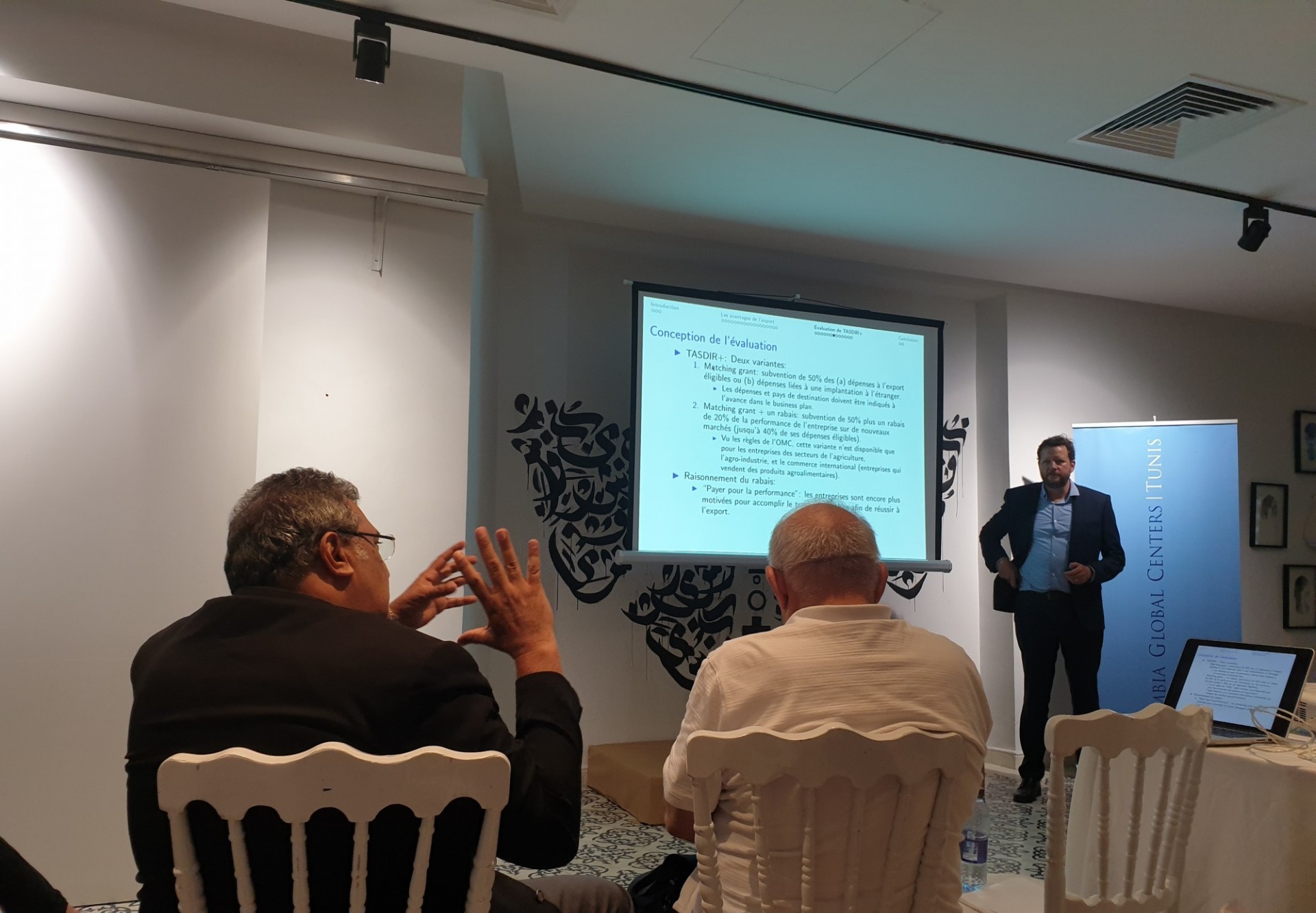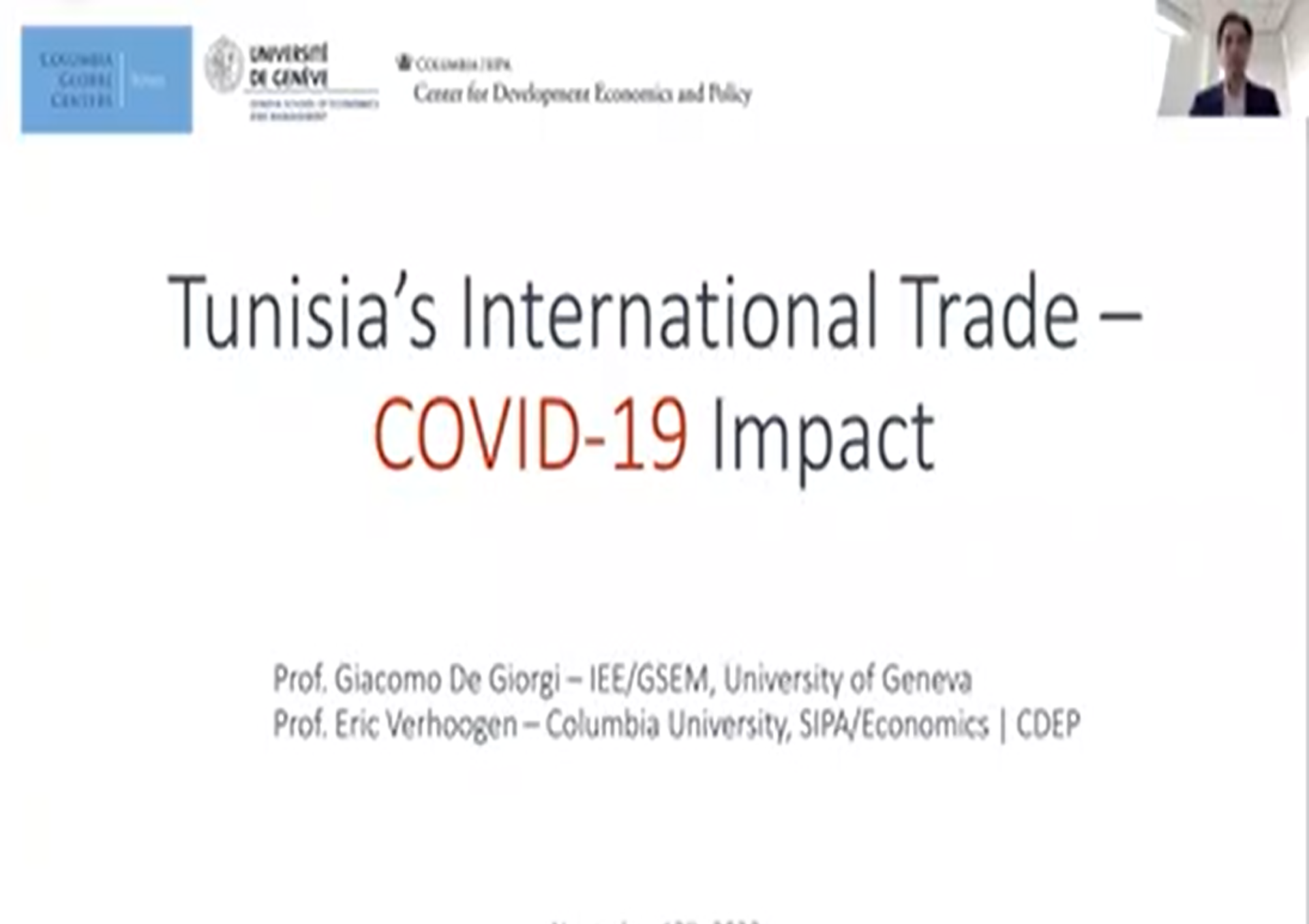Project Description
To promote export diversification, the Tunisian government is implementing a $22 million export matching grant scheme, TASDIR+. TASDIR+ aims to increase exports and promote export diversification toward higher value-added exports and new markets. Working closely with the Tunisian government export-promotion agency (CEPEX), this study is using a randomized controlled trial to evaluate TASDIR+’s traditional matching grant scheme and a newly implemented rebate scheme. Under the traditional matching grant scheme, eligible firms receive a 50% cost subsidy for eligible export-related expenses. Under the rebate scheme, available to agriculture / agribusiness / trading firms, eligible firms receive the 50% cost subsidy and a pay-for-performance rebate based on the firm’s export performance in new markets. These subsidies are being distributed randomly to eligible applicants.
The two questions the project seeks to answer are: (i) does subsidizing a firm’s export business plan or office abroad help firms export to new markets or export new product variety? and (ii) do export rebates encourage firms to increase export volume, export new product varieties, and/or export to new (advanced) markets? While both export subsidies and matching grants are popular policy tools, to date there is very little rigorous evidence on their effectiveness, a gap this proposed impact evaluation aims to address.



